

|
|
Escape!
R2 - United Kingdom - Network Review written by and copyright: Paul Lewis (8th April 2013). |
|
The Film
 Escape! (Basil Dean, 1930) 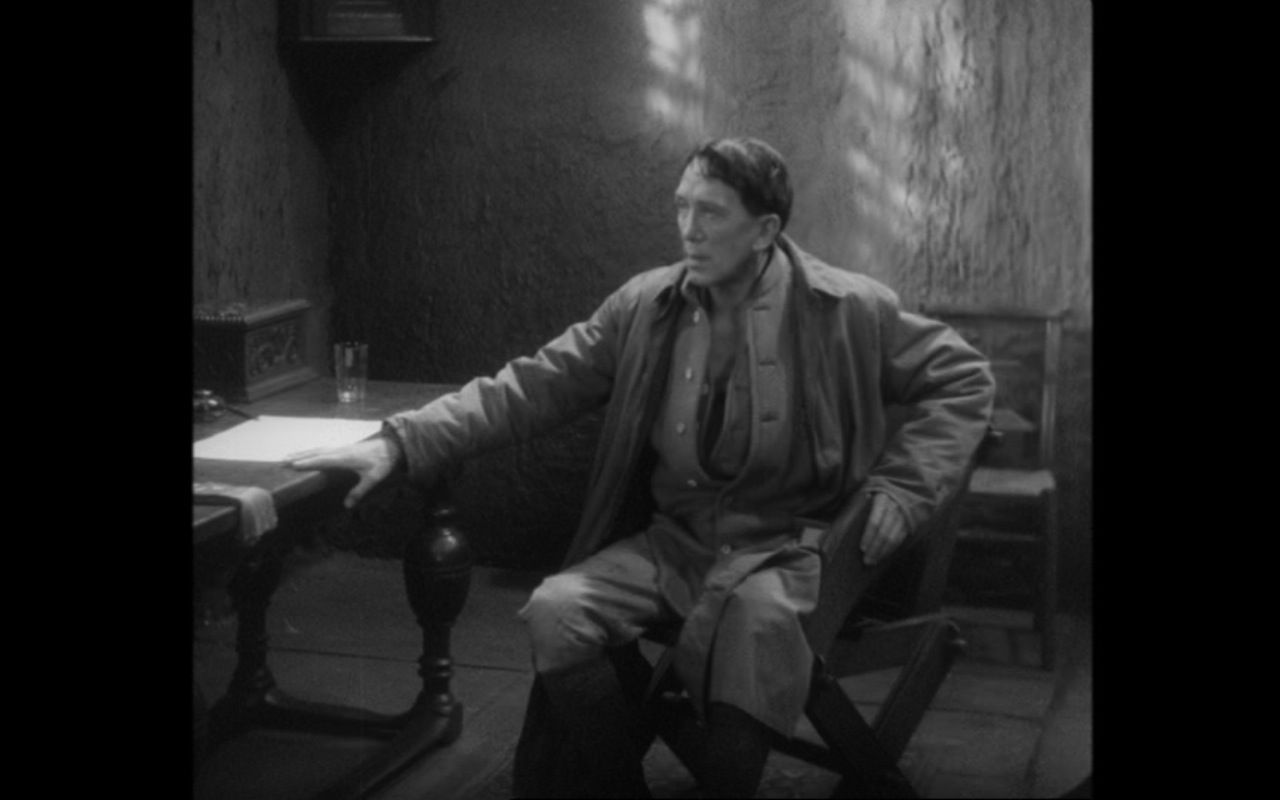 One of the earliest British ‘talkies’, Basil Dean’s Escape (1930) was based on John Galsworthy’s 1920 play of the same title. A later adaptation of the play, directed by Joseph L Manciewicz in 1948, would star Rex Harrison in the lead role of Matt Denant, a military hero who finds himself sentenced for manslaughter after accidentally killing a policeman in Hyde Park whilst defending a woman’s honour; Denant’s escape from prison forms the central focus of the narrative. Dean’s 1930 version of the play has Denant played by Gerald du Maurier, the father of the painter Jeanne du Maurier and writers Angela and Daphne du Maurier. One of the earliest British ‘talkies’, Basil Dean’s Escape (1930) was based on John Galsworthy’s 1920 play of the same title. A later adaptation of the play, directed by Joseph L Manciewicz in 1948, would star Rex Harrison in the lead role of Matt Denant, a military hero who finds himself sentenced for manslaughter after accidentally killing a policeman in Hyde Park whilst defending a woman’s honour; Denant’s escape from prison forms the central focus of the narrative. Dean’s 1930 version of the play has Denant played by Gerald du Maurier, the father of the painter Jeanne du Maurier and writers Angela and Daphne du Maurier.
In Manciewicz’s later film (reputedly made after Rex Harrison, impressed with Dean’s film, approached Darryl F Zanuck with the idea of remaking it), Denant would be made into a former RAF squadron leader (Hanson & Dunkleberger, 1999: 691). The first draft of the screenplay for Manciewicz’s film was censured by the Breen Office owing to the perception that, in making Denant a sympathetic character, ‘the story seems to condone and justify a certain type of lawlessness’ (quoted in ibid.). Manciewicz’s later film also ran into trouble over its depiction of the young woman whom Denant defends against the plainclothes policeman, a choice of action that leads to Denant striking the officer, who then falls and hits his head against a bench; it is this blow that causes the officer’s death. The young woman Denant defends is accused by the police officer of being a prostitute – and in Dean’s film (and Galsworthy’s play), it is clear that she has been attempting (unsuccessfully) to solicit Denant. However, the Breen Office dictated that in Manciewicz’s film, ‘[i]t is sufficient for story purposes that she merely be suspected of being a prostitute’, leading to reshoots of the Hyde Park sequence (quoted in ibid.). 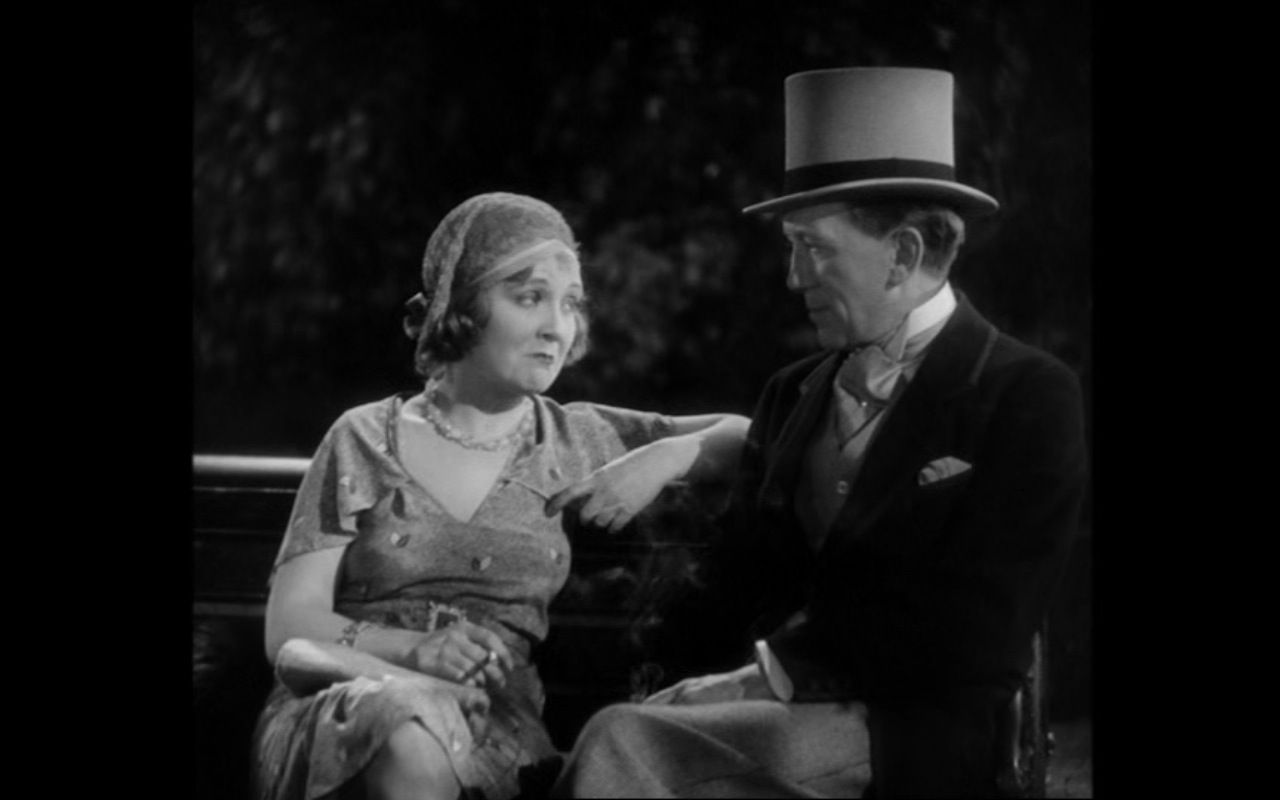 In the original play and Dean’s film version, Denant is a veteran of the First World War who spent part of the war escaping from German captivity. He is introduced during a fox hunt during which, as the hounds kill and eat the fox, he stands apart from the other riders. ‘I hate seeing the fox broken up’, he tells another man. ‘Then why hunt?’, the other man asks. Matt tells him, ‘Because I like following the hounds across country, and I enjoy jumping [….] I’ve been chased myself, old man’. ‘You mean during the war in Germany?’, the other man asks. ‘Yes’, Matt replies, ‘it isn’t too jolly’. ‘But you got away’, the other man says. ‘Yes, but the fox didn’t’, Matt notes. ‘The fox isn’t human’, the other man asserts. ‘Not too far off, old man’, Matt informs him. In the original play and Dean’s film version, Denant is a veteran of the First World War who spent part of the war escaping from German captivity. He is introduced during a fox hunt during which, as the hounds kill and eat the fox, he stands apart from the other riders. ‘I hate seeing the fox broken up’, he tells another man. ‘Then why hunt?’, the other man asks. Matt tells him, ‘Because I like following the hounds across country, and I enjoy jumping [….] I’ve been chased myself, old man’. ‘You mean during the war in Germany?’, the other man asks. ‘Yes’, Matt replies, ‘it isn’t too jolly’. ‘But you got away’, the other man says. ‘Yes, but the fox didn’t’, Matt notes. ‘The fox isn’t human’, the other man asserts. ‘Not too far off, old man’, Matt informs him.
Denant’s attitude towards the hunt and his prior experiences in the war inform his escape from prison, which takes place as some of the prisoners are working on the moors in heavy fog. One of the other prisoners tells Matt, ‘You were lucky not to swing, mate’. Matt asserts that he resents being treated ‘like a dog’ by the guards. Matt tells the other prisoner that he would like to escape, but the other inmate tells him, ‘Don’t do it: there ain’t a chance in a million’. ‘I got away from Germany’, Matt says; the other man replies, ‘The whole countryside’s agin ye: they don’t like convicts’. Matt escapes into the fog, and for the rest of the film he is chased by the police and, during his escape, encounters a variety of people from different walks of life, all of whom react to his escape differently. Matt’s conversations with these people foreground society’s attitudes towards convicts and, more generally, notions of justice. Perhaps most notable is a sequence in which Matt stumbles across an angler; the man is later revealed to be a judge. ‘I don’t envy an escaped prisoner in this country. We’re a law-abiding race. I was very much struck with the difference in America last year […] Supreme disregard for the law themselves, with a strong sense of moral impertinence in the other’, the man tells Matt. Matt informs the man that he ‘escaped from Germany during the way’. ‘Very interesting’, the man says. ‘Very, if you want to get thin’, Matt says. ‘I’ve often wondered what I should do if I should blunder into an escaped convict’, the judge notes: ‘One’s duty, perhaps, eh? [….] They tell me prisons are very much improved’. He gives Matt a cigar and asks, ‘Do you know any convicts?’ Matt replies, ‘I’ve known lots of people who ought to be’. Before allowing Matt to leave, the judge notes that, ‘I’ve never before talked to a prisoner who’s escaped from Germany’. ‘Goodbye sir, it’s frightfully sporting of you. For the moment, I feel quite human’, Matt asserts as the man promises he will not report his encounter with Denant to the police. 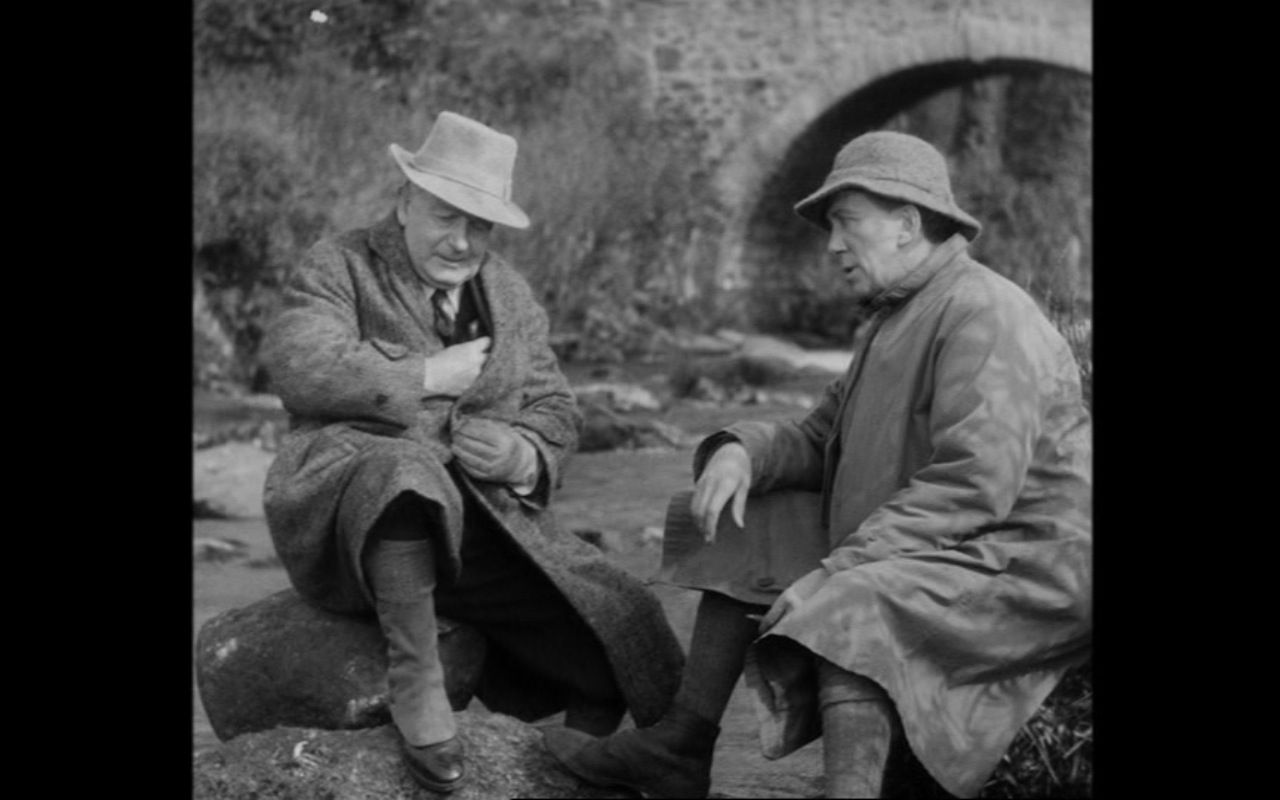 Other people Matt encounters are less sympathetic. Matt overhears a group of picnickers conversing about his escape, which has been reported on the radio. They are full of bluff and bluster, asserting that if they encountered Matt, they would hold him for the police. Matt manages to navigate around the group and steals their car. Other people Matt encounters are less sympathetic. Matt overhears a group of picnickers conversing about his escape, which has been reported on the radio. They are full of bluff and bluster, asserting that if they encountered Matt, they would hold him for the police. Matt manages to navigate around the group and steals their car.
Two standout sequences occur in the film: during the opening sequence, as the fox hunt begins, events are filmed in an almost documentary-like fashion. However, as the hounds pursue the fox through the fields, the sequence becomes increasingly expressionistic, and the hunt is depicted through an unusual form of montage which makes use of overlapping images and lap dissolves – which suggest movement through the countryside and the aggression of the snarling pack of hounds – rather than the cuts that are more commonly associated with montage. A similar sequence takes place later, as Matt is overcome by exhaustion during his escape: overlapping images and sounds suggest a cacophony of experiences coming together in his mind: the fox hunt, his experiences during the war, and his time in prison. Denant collapses shortly afterwards. 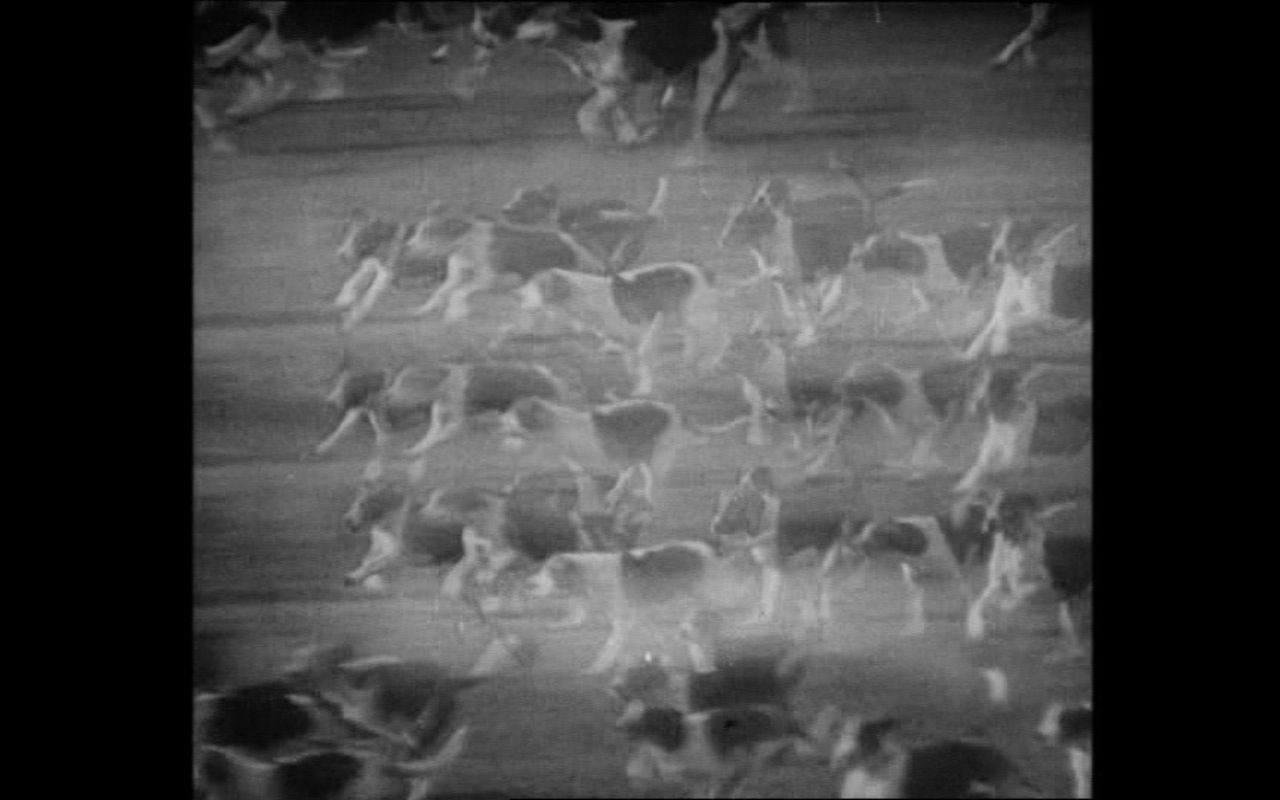 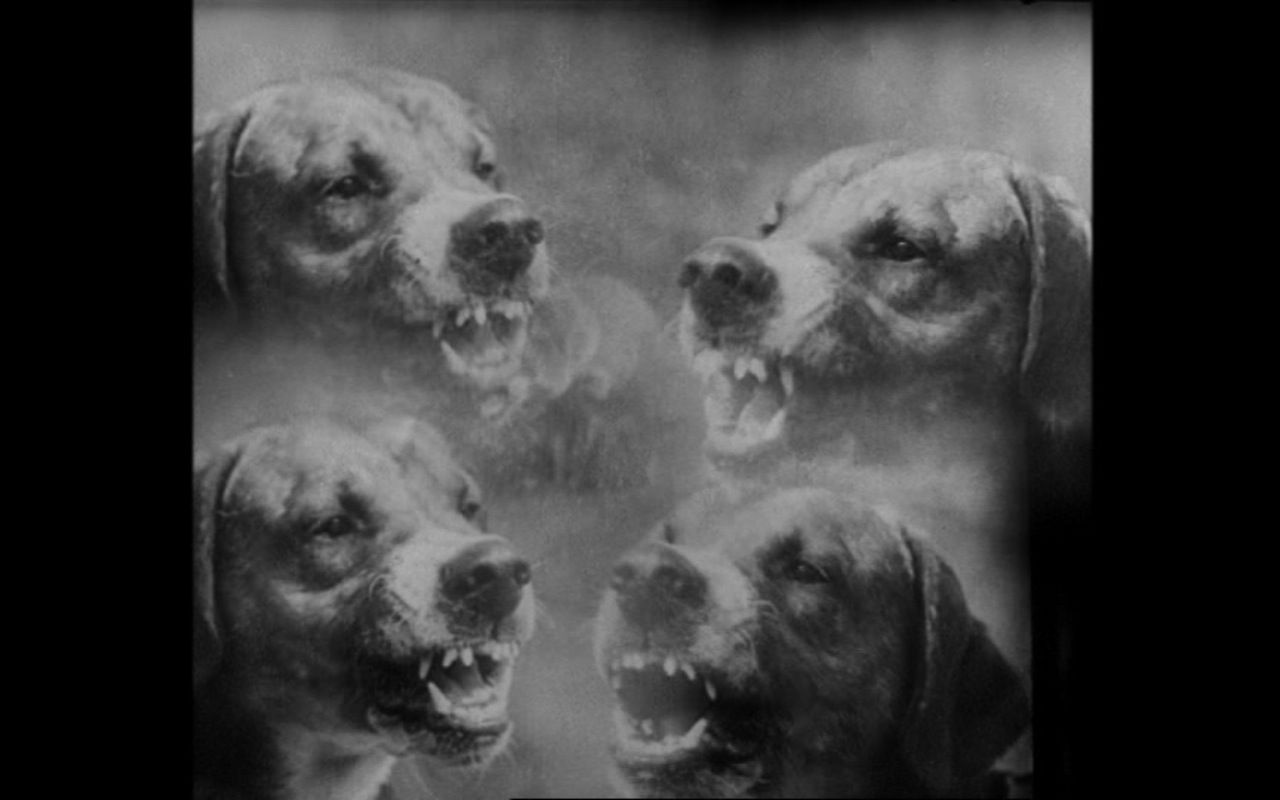 Robert Murphy has suggested Galsworthy’s play (and Dean’s film) is a precursor to a recurring motif within later films noirs: ‘that of a man accused of a crime of which he is innocent, pursued through a hostile and indifferent world while he himself searches for the real killer’ (1992: 151). As Murphy notes, this theme was ‘common enough […] in British thrillers in the thirties—Hitchcock’s The Thirty-Nine Steps, and Young and Innocent, Arthur Woods’ They Drive By Night—but in the forties it occurred less frequently and when it did the men on the run were sometimes guilty’ (ibid.). Murphy notes that whereas ‘[i]n 1930—and no doubt in 1920 when the play was written—the exposé of a brutal prison system and the sympathy shown to an escaped convict had a certain radical edge’, but by the time of the production of Manciewicz’s version in 1948 ‘the antics of Galsworthy’s gentleman convict seemed out of place in post-war Britain’ (ibid.). According to Rachael Low (2005), Dean began working on the film with little experience of filmmaking but ‘had many literary, theatrical and society contacts and he intended to make films of a high cultural standard’ (150). Dean, actor Clive Brook and a cameraman went to Dartmoor to shoot footage for the film, which later turned out ‘to be unusable’ (ibid.). Dean then went to America, making The Return of Sherlock Holmes (1929) for Paramount there, and whilst in America Dean secured RKO’s support as the distributor of Escape. Returning to England, Dean and Galsworthy decided to remove a subplot involving Denant falling in love and cast du Maurier as the lead in the film. Dean favoured location shooting ‘despite the difficulties of sound recording’ during the early years of ‘talkies’, and much of the film was shot on location at Hyde Park and on Dartmoor, with some sequences being filmed at Beaconsfield Studios (ibid.: 151). Costing £42,762 to produce, Escape was not successful with audiences, and Low speculates that ‘[t]he public may have been put off, as the trade certainly was, by the high-class air of the film and its makers, especially of its star, for Sir Gerald was an evident toff’ (ibid.). The film runs for 68:20 (PAL) and has been released as part of Network’s Ealing Studio Rarities Collection, Volume 1. The contents of this set are as follows: DISC ONE: Escape! (Basil Dean, 1930) (68:20) West of Zanzibar (Harry Watt, 1954) (92:49) DISC TWO: Penny Paradise (Carol Reed, 1938) (69:23) Cheer Up! (Leo Mittler, 1936) (68:43) Gallery (2:31)
Video
The monochrome film is presented in an aspect ratio of 1.19:1. The print shows quite a bit of damage, as you would perhaps expect, but otherwise looks very good – it is sharp and with good contrast. 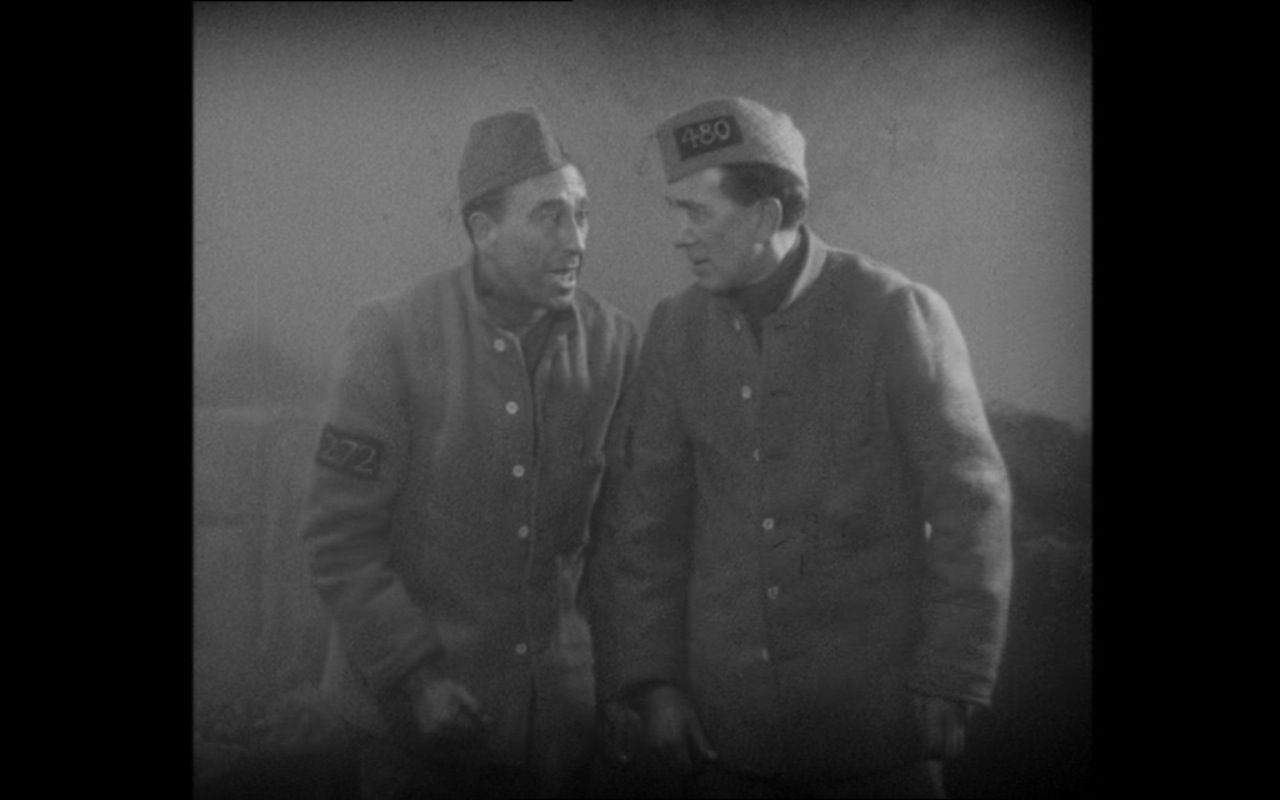 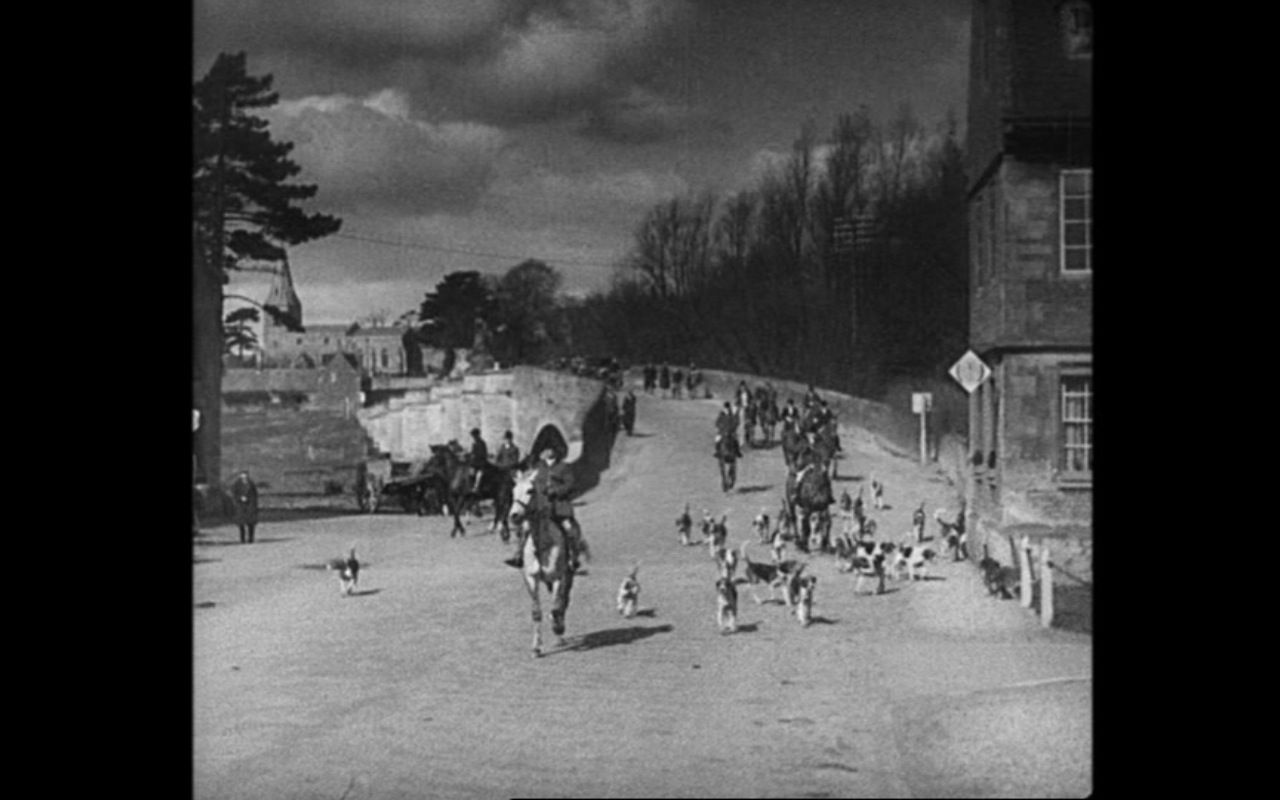
Audio
Audio is presented via a two-channel mono track. This is fairly clear, but sometimes dialogue is hard to make out, sometimes drowned out by music and at other times by a background hiss. The problems of recording sound on location seem evident in those sequences shot on Dartmoor and in Hyde Park. Subtitles aren’t included, sadly.
Extras
Overall
Escape is an interesting little film that deals openly with attitudes towards the concept of justice and the treatment of criminals. Denant’s past during the First World War adds a depth to the film that is lacking in the 1948 adaptation of the same play. This disc contains a handsome presentation of the film. References: Hanson, Patricia King & Dunkleberger, Amy (eds), 1999: American Film Institute Catalog of Motion Pictures Produced in the United States, 1941-1950. University of California Press Low, Rachael, 2005: The History of the British Film, 1929-1939: Film Making in 1930s Britain. London: Routledge Murphy, Robert, 1992: Realism and Tinsel: Cinema and Society in Britain 1939-1949. London: Routledge This review has been kindly sponsored by: 
|
|||||

|